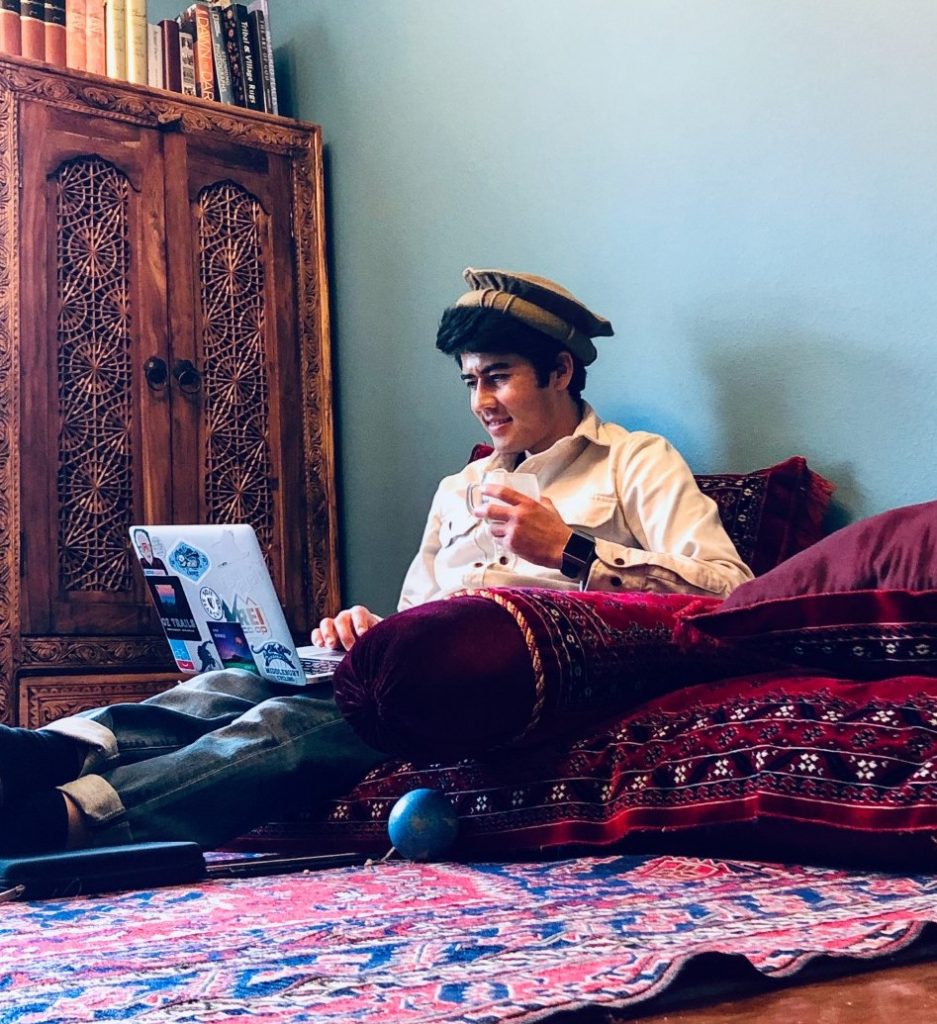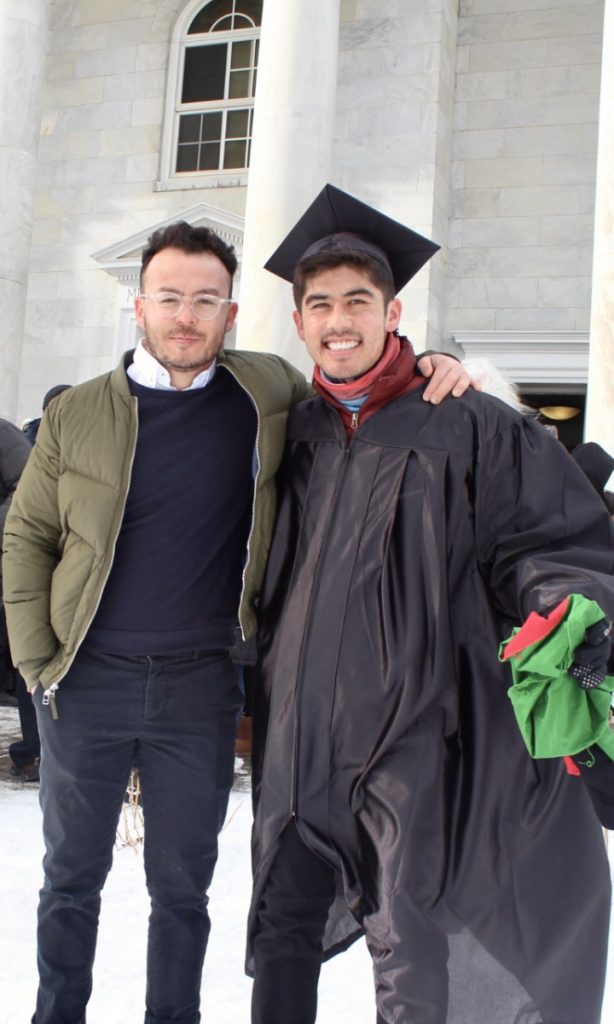
NER intern Maia Sauer ’22 chats with Farid Noori ‘19.5 about his past experience with NER and his two-wheeled journey since Middlebury.
Maia Sauer: When were you an intern with NER, and what were some memorable aspects of your experience?
Farid Noori: I did my internship with NER during the 2017 winter term. Every hour was memorable and exciting, because the experience of being immersed in a professional literary environment was very new to me. I particularly enjoyed the editorial meetings with Jennifer Bates, which was definitely outside my comfort zone as the intern with the least literary experience (I majored in Economics). But, it pushed me to learn, and to learn quickly. The discomfort that came from the challenge of learning something new and getting my brain used to a new way of thinking is what made my time the most riveting.
MS: Since Middlebury, you’ve followed your love of cycling and entrepreneurship to form the organization Mountain Bike Afghanistan. You’re also pursuing an MBA program. Could you share a few steps on your path to how you arrived here?
FN: Actually, I started Mountain Bike Afghanistan while still a student at Middlebury College in 2018. What followed after my graduation in February of 2019 was a year on the road, coast to coast, chasing mountain bike races and promoting my nonprofit to interested audiences. The decision to start grad school came from the need to extend my student visa. I applied to several universities, all of which had to meet the one condition of being located in exceptionally good places for mountain biking. I was fortunate that I was admitted to the Sam M. Walton College of Business at the University of Arkansas in Fayetteville, home to the fastest growing network of mountain bike trails and cycling communities in the United States, and arguably the world. I am very lucky to be here.
MS: What does a typical day in your life look like right now?
FN: My days are nearly all the same, with no distinction between weekdays and weekends. I am an early riser, usually up by 6AM, sometimes earlier. I make French Press coffee and dive into reading the New Yorker for an hour. This is my sacred part of the day. I can attest to any recent college graduate and aspiring writer out there that subscribing to your favorite magazine is the first adult thing you must do. At some point in the day, depending on the weather, is a bike ride ranging from 1.5 to 5 hours. In between, I attend classes, which are entirely online these days. I also work a twenty hour-per-week Graduate Assistant (GA) position for a small private company, mainly doing business analysis (also online). Only after all of these must-do commitments are fulfilled do I get to work on Mountain Bike Afghanistan; planning new projects, fundraising, supporting our team of cyclists back home, etc. It’s a busy life, but I enjoy doing it all.
MS: Could you point to one skill that you developed during your undergraduate years—in school or internships—that has been beneficial to your current work?
FN: Asking and sharing! Just good communication skills—I cannot stress this enough. I have found that people in positions of leadership and influence really like and value the passion and potential of younger, more inexperienced people. And they want to help. One just has to be comfortable enough to be vulnerable and reach out, be it cold-calling on LinkedIn or a tag on Twitter. There are a myriad of ways to connect these days. Some of these attempts may go unanswered, but most often they do not. Whatever your dreams and goals may be, you cannot get closer to achieving them by relying on your own skills alone. Having allies and mentors is really important, not just to guide you along the way, but to challenge you to continue to grow.
MS: Have you read any good books recently?
FN: I enjoyed every word in The Boys in the Boat by Daniel James Brown. The grit of the individuals is inspiring, but so is the language that Brown skillfully employs in the book. As an aspiring writer in the nonfiction genre, I didn’t just read the book. I studied it.
MS: What makes a perfect story?
FN: Stories that tap into the depth of lived experiences and attempt to answer the why? Too often we confront stories that answer the how of things, but when stories attempt to address the why, they enter another dimension, seeing past the obvious and the mundane.
Speaking of stories, I am delighted to share that I published two feature articles last year (as proof that you can still write even if you are doing something as technical as an MBA—I think Carolyn Kuebler will be proud): one which was on the front page of Bicycling Magazine, https://bit.ly/35JoSVs; and another in CyclingTips: https://bit.ly/2Nf5E3w.
MS: Thank you, Farid! It was great speaking with you. I look forward to keeping up with your adventures through writing and cycling.
